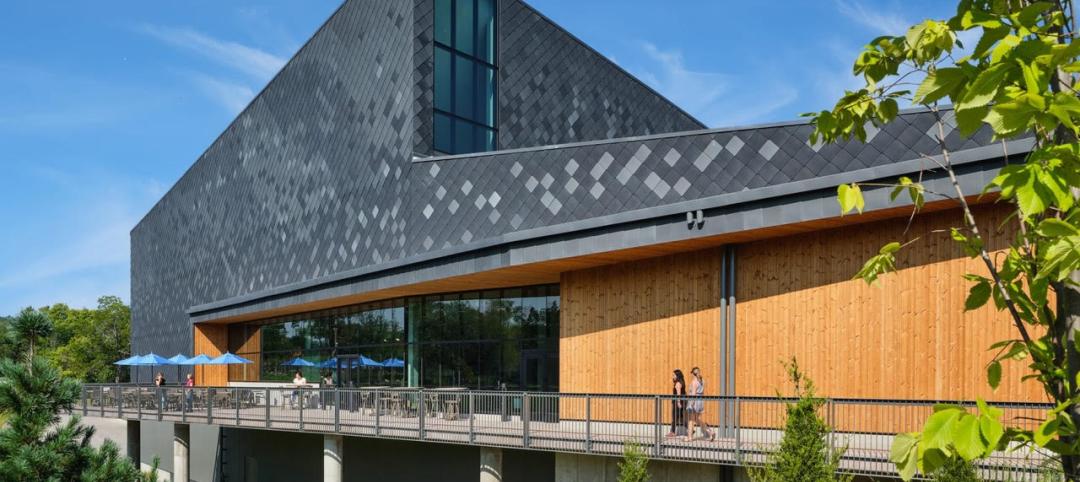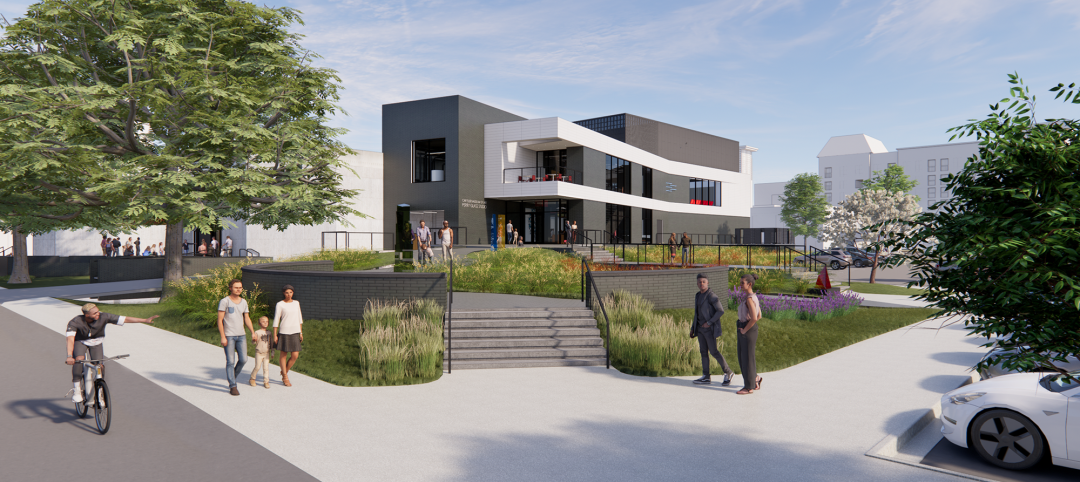Perkins&Will and the American Institute of Architects (AIA) today released best practices for creating and implementing comprehensive diversity programs for U.S. firms. In a white paper entitled “Creating a Culture of Justice, Equity, Diversity, and Inclusion in Your Architectural Practice,” authors Gabrielle Bullock, FAIA and Bill Schmalz, FAIA maintain that architecture firms must rigorously uphold J.E.D.I. principles to remain relevant to clients, attractive to talent, and competitive in an increasingly diverse world.
“Our industry and society are facing an unprecedented convergence of crises. Economic, health, environmental, social, and racial justice challenges have presented us not just with an opportunity, but also a responsibility, to address them,” says Bullock, who has served as director of global diversity at Perkins&Will since 2013. “We can elevate the industry by challenging the status quo and reimagining the future by looking through the J.E.D.I. lens.”
The authors outline seven easy-to-understand steps, such as articulating a vision, identifying a leader, establishing a network of partners, and developing tools to effect positive change at both the educational and professional levels. If followed, the steps promise to help firms of any size make measurable progress toward social and cultural competency.

“The profession is long overdue in addressing these topics,” says Schmalz, a member of the Perkins&Will LGBTQ+ affinity group in Los Angeles. “We are hoping this paper gives firms a process and the tools they can use to achieve success in creating a culture of justice, equity, diversity and inclusion.”
In addition to outlining best practices, the white paper calls for the urgent establishment of J.E.D.I. programs within every U.S. firm. The reasons, the authors argue, are clear: First, demographics in the U.S. are changing—and rapidly: Today’s professional workforce is made up of more people of color, more women, and more openly LGBTQ+ people than ever before. Second, clients seeking architectural services are increasingly diverse and, consequently, more likely to hire teams who look like and identify with them; a firm’s failure to reflect the diversity of its clients is a failure to meet its clients’ needs. And third, architects have an imperative, as social visionaries, to use the power of design for the greater human good.
“Human society is complex, multicolored, and multicultural. Architecture firms must reflect this truism, authentically, in everything they do,” says Bullock. “Not only does their future success depend on it; the future health and well-being of entire generations depend on it, too.”
Click here to read and download the white paper.
Related Stories
Cultural Facilities | Mar 27, 2024
Kansas City’s new Sobela Ocean Aquarium home to nearly 8,000 animals in 34 habitats
Kansas City’s new Sobela Ocean Aquarium is a world-class facility home to nearly 8,000 animals in 34 habitats ranging from small tanks to a giant 400,000-gallon shark tank.
Market Data | Mar 26, 2024
Architecture firm billings see modest easing in February
Architecture firm billings continued to decline in February, with an AIA/Deltek Architecture Billings Index (ABI) score of 49.5 for the month. However, February’s score marks the most modest easing in billings since July 2023 and suggests that the recent slowdown may be receding.
Cultural Facilities | Mar 26, 2024
Renovation restores century-old Brooklyn Paramount Theater to its original use
The renovation of the iconic Brooklyn Paramount Theater restored the building to its original purpose as a movie theater and music performance venue. Long Island University had acquired the venue in the 1960s and repurposed it as the school’s basketball court.
Adaptive Reuse | Mar 26, 2024
Adaptive Reuse Scorecard released to help developers assess project viability
Lamar Johnson Collaborative announced the debut of the firm’s Adaptive Reuse Scorecard, a proprietary methodology to quickly analyze the viability of converting buildings to other uses.
Security and Life Safety | Mar 26, 2024
Safeguarding our schools: Strategies to protect students and keep campuses safe
HMC Architects' PreK-12 Principal in Charge, Sherry Sajadpour, shares insights from school security experts and advisors on PreK-12 design strategies.
Green | Mar 25, 2024
Zero-carbon multifamily development designed for transactive energy
Living EmPower House, which is set to be the first zero-carbon, replicable, and equitable multifamily development designed for transactive energy, recently was awarded a $9 million Next EPIC Grant Construction Loan from the State of California.
Museums | Mar 25, 2024
Chrysler Museum of Art’s newly expanded Perry Glass Studio will display the art of glassmaking
In Norfolk, Va., the Chrysler Museum of Art’s Perry Glass Studio, an educational facility for glassmaking, will open a new addition in May. That will be followed by a renovation of the existing building scheduled for completion in December.
Sustainability | Mar 21, 2024
World’s first TRUE-certified building project completed in California
GENESIS Marina, an expansive laboratory and office campus in Brisbane, Calif., is the world’s first Total Resource Use and Efficiency (TRUE)-certified construction endeavor. The certification recognizes projects that achieve outstanding levels of resource efficiency through waste reduction, reuse, and recycling practices.
Office Buildings | Mar 21, 2024
Corporate carbon reduction pledges will have big impact on office market
Corporate carbon reduction commitments will have a significant impact on office leasing over the next few years. Businesses that have pledged to reduce their organization’s impact on climate change must ensure their next lease allows them to show material progress on their goals, according to a report by JLL.

















